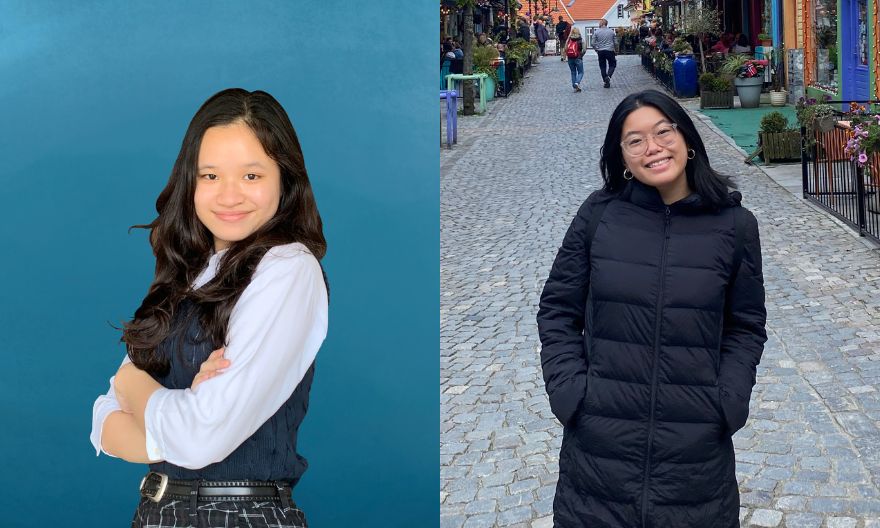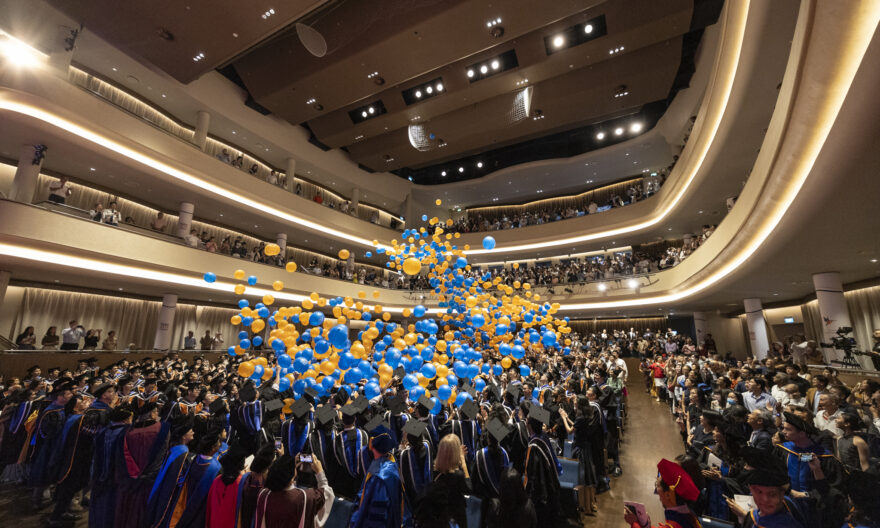9th Yale-NUS Student Government restructures to represent diverse student interests
Two representatives share their thoughts on the future role of Student Government
 President of the 9th Student Government, Sabrina Eng (Class of 2025) on left, and Appointed Director of Academics, Sophia Chok (Class of 2025) on right. Images provided by Sabrina and Sophia.
President of the 9th Student Government, Sabrina Eng (Class of 2025) on left, and Appointed Director of Academics, Sophia Chok (Class of 2025) on right. Images provided by Sabrina and Sophia.
First formed in 2015, the Yale-NUS Student Government serves as the main channel for student advocacy and liaison with the school administration. During this period of transition for the College, the 9th Student Government has continually adapted in order to effectively represent the student community’s evolving needs.
President Sabrina Eng (Class of 2025) and Appointed Director of Academics Sophia Chok (Class of 2025) both joined Student Government to serve the student body in a more involved capacity. “As the Appointed Director of Academics, I wanted to have a direct role in advocating for the education I wanted and to ensure the quality of our education as the years progress,” shared Sophia.
Similarly, Sabrina explained, “I came into Yale-NUS with a mindset of wanting to help people. After I joined Student Government, I just kept doing it and I received a lot of fulfilment from the fact that I was helping people, and that students I spoke to felt that I was approachable. It felt like I was fulfilling a duty to the school and my friends.”
Sabrina and Sophia’s personal desire to help fellow students aligned closely with Student Government’s core purpose: to advocate for student interests. Sabrina pointed out how the College’s Student Government is uniquely placed to fulfil this role compared to other colleges’ student unions.
“Being in the Student Government of a much smaller school, we have much more face-to-face time with students. In that way our role has become more intimate. We hear things every day and we take these up to the administration which we also have a much closer relationship with than other student unions.” As Sophia put it, the Student Government is a critical “bridge” between students and the administration that enables student needs to be heard and acted upon.
For instance, biweekly updates regarding key policy changes and calls for student feedback are posted through the Kingfisher Chirps Telegram channel. This has created an accessible channel of communication where students can stay informed of recent developments in the College and easily share their thoughts with Student Government members.
To continue fulfilling this role effectively as the student body shrinks over the next few years, the 9th Student Government has decided to streamline its structure. This included removing the Director and Vice-President positions in favour of a group of Class Representatives. These Class Representatives will not be limited to specific portfolios such as Student Affairs or Residential Life, but can initiate a wide variety of projects they feel passionate about, addressing students’ diverse needs more flexibly and responsively.
“With a flatter structure, it makes Student Government more accessible to the student body and allows for students to engage with the issues they care about,” said Sophia. This also creates a more even distribution of workload, allowing Student Government members to balance their responsibilities with other commitments.
While the restructuring will only be fully implemented after the upcoming elections, Sabrina shared how the flexible and collaborative spirit in Student Government has already borne fruit. “My Directors, who have been with me since I started, have been consistent and willing to step up whenever needed. My Class Representatives were also able to step in for various events and fill in gaps when they appeared. All things considered, we adapted.”
For example, the Student Government was quick to respond to changes in the College’s curriculum such as the fulfilment of Scientific Inquiry and Historical Immersion module requirements. The Directors launched polls to gather feedback from the student body, while arranging discussions with key staff and faculty to clarify module offerings for future semesters and ensure adequate opportunities for students to fulfil these requirements. This allowed students to better plan their future academic pathways in the College. Class Representatives were also instrumental in facilitating events such as Student Town Halls and community dialogues with NUS College.
On their hopes for the College’s student body moving forward, Sophia shared, “I hope the student body continues to actively engage with the administration, whether through Student Government or other means, to have their voices and concerns heard.”
“I hope people in general continue to feel that they’re supported, if not by Student Government, then by the people around them including faculty and staff. I always want students to feel like they have a say in what happens,” said Sabrina. “If nothing else, they can rely on each other and on Student Government as long as we’re here.”
The Student Government will continue to evolve and adapt as the College moves into its final years. Nevertheless, its core mission, advocating for student interests, will always be integral to the Yale-NUS community.





